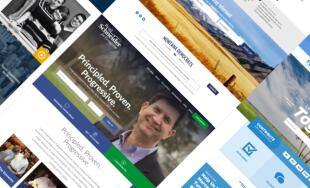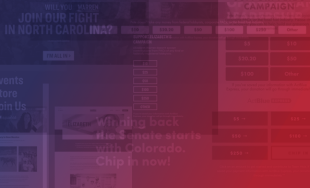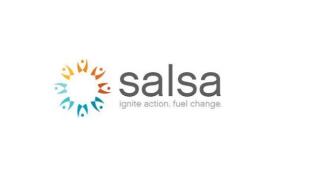A Review of Microsoft TownHall, a Social Media Platform for Politics
The current state of social media in politics
Every politician knows they should have a fan page on Facebook, open a Twitter account and maintain a blog, and most these days do. Some even have their blog RSS hooked up to automatically update their Facebook page and send a Tweet.
The problem is that while politicians are sharing information in these social networks, they're not interacting in them. Looking at a collection of members of Congress who are using Twitter, many have fewer than 200 all-time Tweets and of the ones who maintained a consistent Twitter stream, nearly all of them were simply Tweeting their press releases. The same holds true for Facebook and many of their blogs as well.
So why aren't politicians...
- Analyzing and adjusting their Facebook Fan page based on analytics
- Using Twitter Search to follow relevant keyword on Twitter and joining the conversation
- Getting emails from Twilert when the politician's name is mentioned in a Tweet so they can respond immeditately
- Tracking their name on How Sociable
- Monitoring blog comments on Backtype
- or any of the seemingly unlimited other tools to improve a politician's online social interaction?
Because it's hard to keep track of it all. And takes a lot of time, which is why Microsoft's recent announcement of TownHall, a social media platform for politics, is so exciting.
How does TownHall's feature set promise to help politicians' online engagement?
TownHall is a cloud-based platform to streamline the Obama campaign's success in harnessing online communication and support. The service allows users to:
- Vote on issues
- Ask questions
- Respond to those questions
- Earn points based on their participation as a reward.
On Monday at the Politics Online Conference, Microsoft unveiled a political and government targeted, cloud-based platform to streamline the Obama campaign's success in harnessing online communication and support. The service, dubbed TownHall, allows users to ask questions, vote on issues, respond to those questions, and earn points based on their participation as a reward.
Participants' data is stored in a database and the campaign can access that data for potentially valuable issue-based and geographic-based information on voters and supporters.
Since a large portion of our work is in political website design, this news was very exciting and we wanted would weigh in on what we think will determine TownHall's success and if it will truly be valuable to campaigns.
First Key to Success - Early adoption
As with any new social networking and engagement tool, early adoption will be extremely important to both the individual and collective success of TownHall. If voters get accustomed to going to a campaign's website to discuss issues and asses other voter opinions, then campaign websites will see a significant increase in traffic and truly transform from informative to interactive.
Only time will tell if this is a campaign-wide trend or will happen on a campaign-by-campaign basis. Likely Unfortunately the campaigns that need increased participation the most, local campaigns, will have the hardest time getting the necessary early adoption, and therefore the hardest time getting true value from TownHall.
Likewise, statewide and certainly national campaigns will probably have the best results and most active participation because interaction-based services are more useful the more people that are participating. One of the luxuries that the '08 Obama campaign had was not having to worry about getting a core group of contributors, an advantage that other larger-profile races will also enjoy.
Social network integration
Because users now have an overwhelming number of networking sites available to them, TownHall's incorporation of those networking sites into its platform will be crucial to minimizing its barrier to entry.
Currently TownHall integrates completely with Facebook Connect, a service that allows visitors to use their Facebook identity to interact on any website (and not just Facebook), which is an important start. And luckily for Microsoft, there has been a recent trend of major social networking sites adopting the ability to spread their services across the web.
Twitter's recent announcement of @Anywhere is the obvious next step, but because campaigns have a shorter lifespan and passionate contributors may not have felt strongly enough in the past about an issue or candidate to take action, a commitment to making participation on TownHall as easy as possible will be essential to its growth.
Do you have any other ideas about what will help make TownHall successful or why it will just be another networking service? Let us know in the comments below!



Leave the first comment